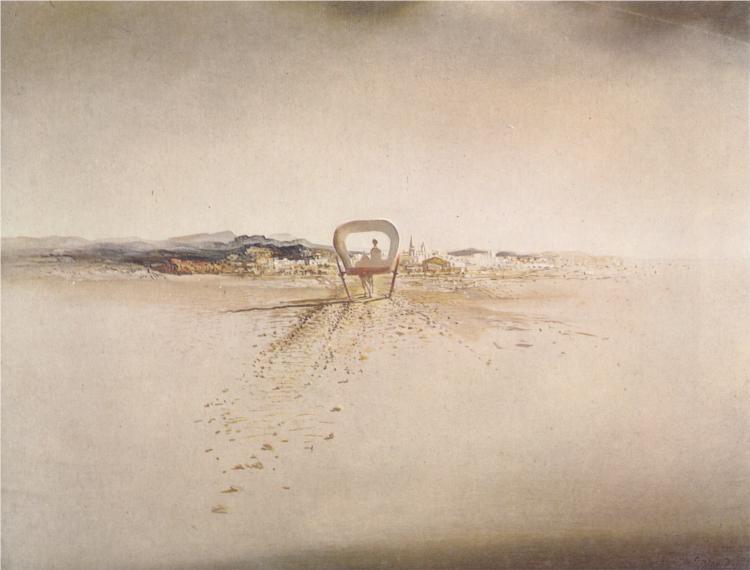
Not merely to dream but as the poet wrote, to hold fast to our dreams – then we can begin to empower ourselves.
We need hope and optimism, sometimes, when external forces have control over the outcomes that will affect our lives. So these values do not have an action component. At their best, they prepare us to act but hope and optimism alone do not express action.
The closest thing we have to an action, in keeping with hope and optimism, is resolve. We can resolve to persevere and not to be defeated. We might call this internal action, as it expresses an individual’s purposeful attempt to maintain a positive attitude and set of convictions.
Real
True Narratives
- Brooke Kroeger, Undaunted: How Women Changed American Journalism (Knopf, 2023), “tracks the victories, setbacks and pathbreaking careers that have marked the decades-long fight for gender parity in the field.”
Technical and Analytical Readings
Photographs
Documentary and Educational Films
Imaginary
Fictional Narratives
Poetry
Music: Composers, artists, and major works
The stately themes and driving rhythms of Johann Sebastian Bach’s four Orchestral Suites, BWV 1066-1069 (1724-1731) (approx. 73-85’) capture the spirit of resolve. The great master seems to have drawn inspiration from the four orchestral suites of his second cousin Johann Bernhard Bach (1720s) (approx. 75-82’), which are decidedly similar in tone and character. Top recorded performances of all four of JSB’s suites are conducted by Busch in 1938, Reiner in 1953, Harnoncourt in 1972, Savall in 1990, Huggett in 2009, Kraus in 2010, (Freiburger Barockorchester) in 2011, Kiujken in 2013, Egarr in 2014, Güttler in 2015, Bernardini in 2017, Alessandrini in 2019, and Butt in 2022. Individually, the suites are: Orchestral Suite No. 1 in C Major, BWV 1066 (1720s) (approx. 20-25’); Orchestral Suite No. 2 in B minor, BWV 1067 (late 1730s) (approx. 20-22’); Orchestral Suite No. 3 in D Major, BWV 1068 (1731) (approx. 18-20’); and Orchestral Suite No. 4 in D Major, BWV 1069 (1720s) (approx. 18-22’).
Other compositions:
- Raga Komal Rishabh Asavari (a/k/a/ Asavari, Asawari, Komal Rishabh Asawari, Asavari Todi, Asawari Todi) is a Hindustani classical raag for late morning performance. It is especially popular in Northern India. Liner notes to a disc featuring Bhimsen Joshi describe it as having “a flavor of intense, dark pathos infused with a strange inner dignity”. Performances are by Uday Bhawalkar, Amir Khan, Omkarnath Thakur, Veena Sahasrabuddhe, Venkatesh Kumar, Ulhas Kashalkar, Nikhil Banerjee, Bade Ghulam Ali Khan, Imrat Khan, Bhimsen Joshi, and Bhimsen Joshi.
- Dora Pejačević, Piano Concerto in G Minor, 33 (1913) (approx. 29’): “Born in 1885 into an influential aristocratic family, Pejačević strongly rebelled against her background, becoming a fervent socialist and serving as an auxiliary nurse during World War I. Developing a strong passion for music at an early age, she studied with a number of prominent musicians in Germany, and was well on the way to establishing a prominent position in musical life during the 1920s when she died at the premature age of 38.” “. . . Pejačević must have been an extremely good pianist. It’s a showy virtuoso vehicle in the traditional three movements . . .”
- Alexander Tchaikovsky, Symphony No. 3, 75 (2002) (approx. 39-43’).
- Charles-Marie Widor, Symphony 7 in A Minor, Op. 42/3 (1885, rev. 1901, rev. 1918) (approx. 43-44’), is described as “a successful fusion of virtuoso ambition and thematic unity. One needs a combination of fingers, musicality and brains to show how the six movements coalesce insofar as tempo relationships, registrations and emotional contrast are concerned.”
Johnathan Blake “is an influential drummer known for his resolute actions and instinctive reactions.” His albums include “Trion” (2017) (113’), “Homeward Bound” (2021) (43’), and “The Eleventh Hour” (2012) (68’).
Music: songs and other short pieces
- Tom Petty & The Heartbreakers, “I Won’t Back Down” (lyrics)
- Electric Light Orchestra, “Hold on Tight” (lyrics)